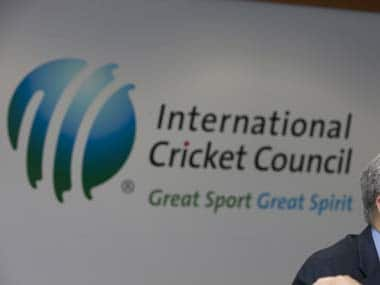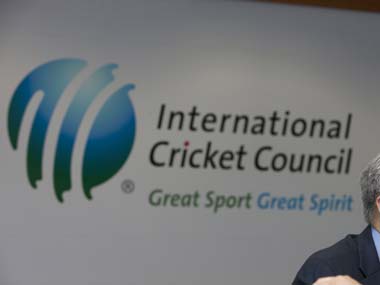The MCC World Cricket Committee was established in April 2006 with the idea of being a truly independent voice in world cricket, free of politics or monetary considerations. This would be in contrast to the ICC, the game’s governing body, which is often constrained by national board politics and the bottom line. The WCC meets twice a year and put out a series of statements today on a number of issues currently concerning cricket. In doing so, the committee accidentally, but perfectly, illustrated the yawning gap between the MCC’s ideal world and the ICC’s real one on three key issues. [caption id=“attachment_1341551” align=“alignleft” width=“380”]
 Representational Image. Getty Images[/caption] The World Test Championship The WCC has reiterated its commitment to a World Test Champion, and claimed the five-day format will suffer without it. It urged the ICC to ensure that at the very least a “final” between the world’s top two Test teams takes place in 2017. Unfortunately, their statement comes a day after a report in the Guardian claimed the Test Championship concept is about to be buried before it even began, thanks to opposition from broadcasters and sponsors. ESPNcricinfo reported today that the ICC might consider
relegation/promotion
instead to give Test cricket greater context. Corruption in Cricket The WCC warns that “the risk corruption in global domestic T20 tournaments poses the biggest threat to the game’s health”. It wants the ICC to make the ACSU’s anti-corruption measures a standard requirement for any tournament to be sanctioned. Currently, there is no such requirement. In contrast, despite the spot-fixing allegations surfacing in the last two seasons of the IPL, and three players being arrested in 2013, the BCCI insists the IPL is clean and there is no cause for alarm. They don’t even think an investigation is necessary following the arrest of Sreesanth, Ankit Chavan and Ajit Chandila by the Delhi police. The Future Tours Program The WCC wants the FTP to be binding. “If ICC Members and ground authorities cannot rely on the FTP in their planning, it is highly de-stabilising,” the committee said in its statement. “Furthermore, the committee noted that, so far, any major changes to schedules have almost invariably adversely affected Test cricket. Yet the ICC seems to be moving in the opposite direction. In the same ESPNcricinfo on the promotion/relegation idea, Daniel Brettig writes: “It is also likely that regulations requiring all teams to play each other regularly will be relaxed - a state of affairs that has already begun to exist.” This about sums up the state of world cricket. What’s good for the game isn’t necessarily good for the bottom line or for individual boards. The full list of WCC member is below (those in italics did not attending this meeting). There is some amount of overlap between the two bodies. David Richardson, the ICC chief executive, is also part of the MCC committee. So is Anil Kumble, who is part of the ICC’s Cricket Committee. So one can expect both sides to understand each other’s thinking. WCC members Mike Brearley (Chairman), Jimmy Adams, Steve Bucknor, Rahul Dravid, Charlotte Edwards, Majid Khan, Anil Kumble, Rod Marsh, Tim May, Shaun Pollock, David Richardson, Kumar Sangakkara, Andrew Strauss, Michael Vaughan, Steve Waugh. What also becomes obvious is that the cricketers who are part of the ICC come a cropper against the administrators who really call the shots. It’s perhaps a sign of the times – the ones who know best are mere observers as the focus remains on money and finances. The full list of WCC statements can be
found here
.
Representational Image. Getty Images[/caption] The World Test Championship The WCC has reiterated its commitment to a World Test Champion, and claimed the five-day format will suffer without it. It urged the ICC to ensure that at the very least a “final” between the world’s top two Test teams takes place in 2017. Unfortunately, their statement comes a day after a report in the Guardian claimed the Test Championship concept is about to be buried before it even began, thanks to opposition from broadcasters and sponsors. ESPNcricinfo reported today that the ICC might consider
relegation/promotion
instead to give Test cricket greater context. Corruption in Cricket The WCC warns that “the risk corruption in global domestic T20 tournaments poses the biggest threat to the game’s health”. It wants the ICC to make the ACSU’s anti-corruption measures a standard requirement for any tournament to be sanctioned. Currently, there is no such requirement. In contrast, despite the spot-fixing allegations surfacing in the last two seasons of the IPL, and three players being arrested in 2013, the BCCI insists the IPL is clean and there is no cause for alarm. They don’t even think an investigation is necessary following the arrest of Sreesanth, Ankit Chavan and Ajit Chandila by the Delhi police. The Future Tours Program The WCC wants the FTP to be binding. “If ICC Members and ground authorities cannot rely on the FTP in their planning, it is highly de-stabilising,” the committee said in its statement. “Furthermore, the committee noted that, so far, any major changes to schedules have almost invariably adversely affected Test cricket. Yet the ICC seems to be moving in the opposite direction. In the same ESPNcricinfo on the promotion/relegation idea, Daniel Brettig writes: “It is also likely that regulations requiring all teams to play each other regularly will be relaxed - a state of affairs that has already begun to exist.” This about sums up the state of world cricket. What’s good for the game isn’t necessarily good for the bottom line or for individual boards. The full list of WCC member is below (those in italics did not attending this meeting). There is some amount of overlap between the two bodies. David Richardson, the ICC chief executive, is also part of the MCC committee. So is Anil Kumble, who is part of the ICC’s Cricket Committee. So one can expect both sides to understand each other’s thinking. WCC members Mike Brearley (Chairman), Jimmy Adams, Steve Bucknor, Rahul Dravid, Charlotte Edwards, Majid Khan, Anil Kumble, Rod Marsh, Tim May, Shaun Pollock, David Richardson, Kumar Sangakkara, Andrew Strauss, Michael Vaughan, Steve Waugh. What also becomes obvious is that the cricketers who are part of the ICC come a cropper against the administrators who really call the shots. It’s perhaps a sign of the times – the ones who know best are mere observers as the focus remains on money and finances. The full list of WCC statements can be
found here
.
From the FTP to Tests, MCC and ICC stand worlds apart
FP Sports
• January 15, 2014, 16:14:04 IST
The WCC’s latest statements accidentally, but perfectly, illustrate the yawning gap between the MCC’s ideal world and the ICC’s real one.
Advertisement
)
End of Article